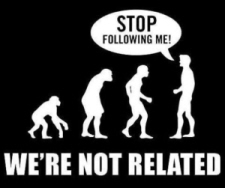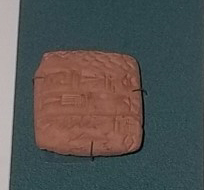
History: The Neglected Subject
“I like study hall and gym. In study hall, I can sleep and in gym, I get to play games. Every other subject is useless info that I will never use.” These are the words of a teenager who was asked his favorite school subject. But when it comes to ‘useless info,’ there is one subject that seems to stand out more than any other in the minds of students: history.
History Neglected
History is the favorite subject of only 7% of students.[1] Sometimes it is the physical education teacher who leads the class. The lectures are often dry, filled with difficult names, jumbled dates, and innumerable wars. Where is the practical application? No wonder students are bored.
The benefits of science and math are obvious: with a mathematical background, the fields of research, business, engineering, programming, and finance are thrown open. Scientific knowledge also translates to jobs in healthcare, more research, and technology. These jobs are the fuel of our economy and are highly valued. But history is not.
Secular History
 Our actions are based on our view of the world. In a secular and humanistic worldview, the past is simply the story of pre-evolved man. How much can we really learn from monkeys? True, we evolved into humans several thousand years, but – minus the bananas and vine-swinging – we still acted like monkeys until the very recent past. Having nothing better to do, people got in big arguments, threw pointed objects, and caved each other’s heads in – only we did it more efficiently than howling spider monkeys ever could.
Our actions are based on our view of the world. In a secular and humanistic worldview, the past is simply the story of pre-evolved man. How much can we really learn from monkeys? True, we evolved into humans several thousand years, but – minus the bananas and vine-swinging – we still acted like monkeys until the very recent past. Having nothing better to do, people got in big arguments, threw pointed objects, and caved each other’s heads in – only we did it more efficiently than howling spider monkeys ever could.
Ignorant and clueless, we imagined that the world was flat, knew very little except magical superstitions, and followed the alpha male. Basically, we imagine that ancient man was uncivilized and ignorant. What is the value of recounting such a sordid history?
History Valued
We didn’t always neglect this subject. In early Massachusetts, for example, it was decreed that every town with 100 homes must have a ‘grammar school.’ What was taught here was Latin, which prepared students to read the classical works. According to Richard Gummere, “By the time a pupil reached his seventh year at the Boston Latin School, he was reading Cicero’s orations, Justinian, the Latin and Greek Testaments, Isocrates, Homer, Hesiod, Virgil, Horace, Juvenal, and dialogues from the topics in Godwin’s Roman Antiquities, as well as turning the Psalms into Latin verse!”[2] Such a history-heavy curriculum is radically different from today’s studies.
Christian History
When I first saw the small clay tablet to the right in the University of Chicago, I was astounded. It is part of an  ancient clay tablet textbook that teaches students how to do quadratic equations – in cuneiform script! One of the questions from this textbook, for example, would be expressed like this today: “xy = 10,0 x=f(x,y)=32, where f(x,y) = 1/11 [1/7 ([x/2] – [1x/32] + [25]) + 17].”
ancient clay tablet textbook that teaches students how to do quadratic equations – in cuneiform script! One of the questions from this textbook, for example, would be expressed like this today: “xy = 10,0 x=f(x,y)=32, where f(x,y) = 1/11 [1/7 ([x/2] – [1x/32] + [25]) + 17].”
In a biblical, Christian worldview, man was created ‘very good,’ until corrupted by sin. Ancient peoples were as smart of those of the present – maybe smarter! Hence, history is no longer a futile study of pre-evolved men with weird ideas. There is much we can learn from those of the past, and through history, we are able to meet, learn from, and be influenced by those who lived before.
Besides, our faith is a historical faith, and the Bible is a historical record that constantly refers to the past. This is why the author of Hebrews mentions “so great a cloud of witnesses,”[3] that is, ancient saints, while Paul says that the church is “built on the foundation of the apostles and prophets.”[4]
In war, it is important to be inspired by brave and patriotic deeds. For followers of Christ, history provides a rich vein of these examples. This is in stark contrast to the secular worldview, concerned only with eating, drinking, and dying on the morrow,[5] which prefers to wallow in apathy rather than see itself in a battle.
Conclusion
People have often pointed out that history is ‘His story,’ reminding us of the importance of the subject. Rather than viewing it as an endless repetition of useless facts, take time to pay attention to the underlying themes, noting how they display God’s providence at work. In heaven, we will spend plenty of time reflecting on God’s work through history.
[1] http://www.gallup.com/poll/12007/math-teens-favorite-school-subject.aspx
[2] The American Colonial Mind and the Classical Tradition
[3] Hebrews 13:1
[4] Ephesians 2:20
[5] 1 Corinthians 15:32



